Did Last Week’s UN Water Conference Accomplish Anything?
An historic summit on the global water crisis was overdue, but it was just a start.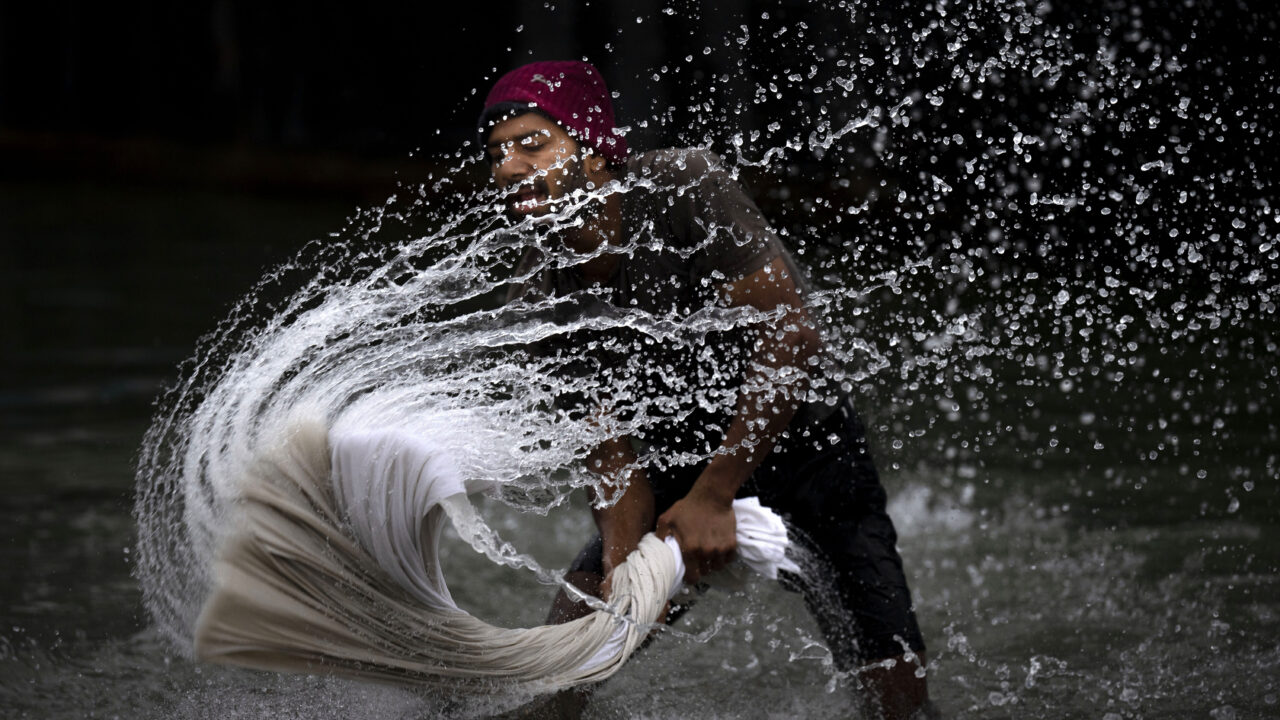 A washerman on the banks of the river Brahmaputra on World Water Day in Guwahati, India, March 22, 2023. (AP Photo/Anupam Nath)
A washerman on the banks of the river Brahmaputra on World Water Day in Guwahati, India, March 22, 2023. (AP Photo/Anupam Nath)
Last week in New York, nations gathered for the first United Nations conference dedicated to water since 1977. Framed by the UN’s Sustainable Development Goals (SDG) program, the event opened Wednesday with the admission that global efforts to protect water resources were “alarmingly off track, jeopardizing the entire sustainable development agenda.”
The event closed three days later with what Earth.org called “political momentum” but no binding commitments in its final document — called the Water Action Agenda — to carry out the actions needed to “avert a global water crisis.” Instead, nations pledged to carry out more than 700 voluntary measures that would, if implemented, “edge the world towards universal access to clean water and sanitation,” and also adopted a statement of “broad agreement that water should be treated as a global common good, and that the world’s approach to water must be less siloed given its nexus with the climate crisis, and food, energy and national security,” as reported by The Guardian.
The subject of water is overdue for action by the UN and member states, both on its own terms and as a subset of the climate crisis. According to the World Health Organization, notes Earth.org,
over 2 billion people — about one-fourth of the world population — live in water-stressed countries and have access only to contaminated drinking water sources, which pose huge health risks and can result in diseases such as cholera, dysentery, typhoid, polio and diarrhea. The latter alone is estimated to cause 485,000 deaths each year, while unsafe water is linked to about 1.2 million deaths. A report published ahead of last week’s conference suggested that demand for freshwater will outstrip supply by about 40% by the end of the current decade, leading to a global water crisis that could have irreversible repercussions on ecosystems and societies worldwide unless immediate action is taken.
To help prevent this, a number of nongovernmental groups, Indigenous groups and member states argued for the urgency of deepening the inclusion of Indigenous voices in international fora related to water policy. As reported by Grist, Indigenous leaders
demanded a seat at the table, citing historic exclusion in international decision making. In a declaration sent to the UN this week, representatives from Indigenous nations, communities and organizations have requested attendees address additional points of discussion to their agendas, including violence against water protectors and protesters, the monetization and capitalization of water and the inclusion of Indigenous leaders in water-based decisions that affect their lands and communities.
“Most Indigenous peoples guard water and other resources, like mountains, biodiversity and other knowledge,” [a Maya K’iche from Guatemala named] Leon Alvarado said. “The government doesn’t respect the knowledge, practice, organization and the old ways that Indigenous peoples use and other measures they take to have clean water.”
UN Secretary-General António Guterres closed the conference by saying, “all of humanity’s hopes for the future depend on bringing the Water Action Agenda to life.”
The next major event, say activists, is November’s COP28 climate summit. There, groups will push states to revisit and bind the Water Action Agenda to legal commitments and monitoring capabilities as part of the broader climate negotiations. The biennial summit will open Nov. 30 in Dubai, United Arab Emirates, which has appointed the head of the Abu Dhabi National Oil Company to oversee the event.
Your support matters…Independent journalism is under threat and overshadowed by heavily funded mainstream media.
You can help level the playing field. Become a member.
Your tax-deductible contribution keeps us digging beneath the headlines to give you thought-provoking, investigative reporting and analysis that unearths what's really happening- without compromise.
Give today to support our courageous, independent journalists.
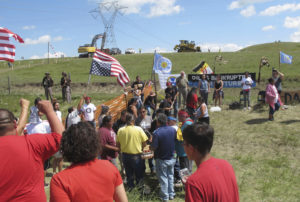

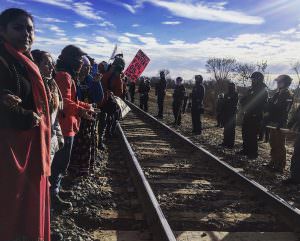
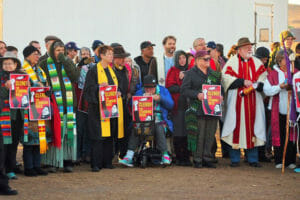

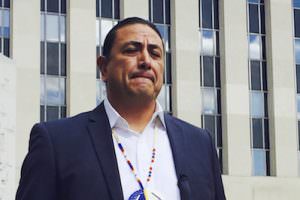
You need to be a supporter to comment.
There are currently no responses to this article.
Be the first to respond.